Read this email in French.

IN PARTNERSHIP WITH

FOR INTERNATIONAL WOMEN’S DAY
Happy International Women’s Day 🎉
In celebration of the brilliant women building across Africa’s tech ecosystem, today’s edition will be a bit different.
Instead of plain old news, we’ve worked with MTN Nigeria to curate a list of 27 women who have a background in ICT and about two decades of contributions in various capacities in the industry.
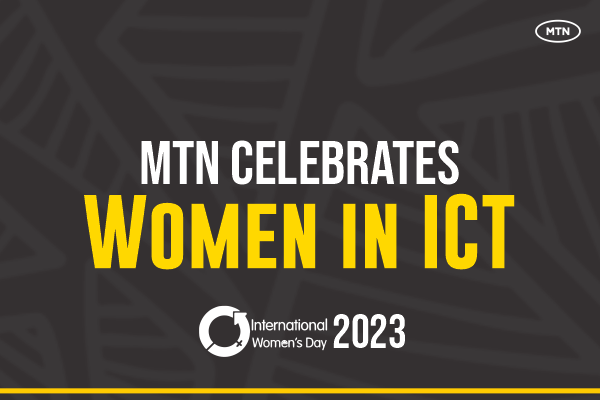
We also considered young women who have made amazing strides since they appeared on the scene.
With less than 1% of funding on the continent being raised by women, it’s critical to highlight the importance of inclusion across the ecosystem, and how these women have made great impact despite evident constraints.
Here are the 27 women making strides in the ICT sector.
THE 27 WOMEN IMPACTING THE ICT SECTOR
1. Omobola Johnson, Nigerian Technocrat and Chairperson Global Alliance for Affordable Internet
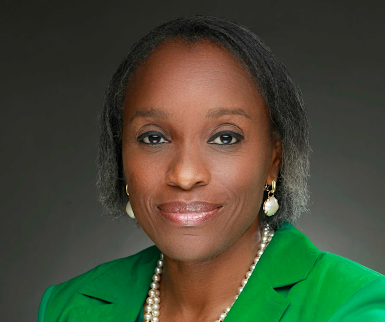
Omobola is the first and former Minister of Communication Technology in Nigeria under President Goodluck Jonathan. A champion of women’s empowerment, she is one of the co-founders of Women in Management, Business and Public Service (WIMBIZ), a non-profit that helps women become leaders in business and public service. She is often described as a technocrat and believes in the collaboration between the government and the ICT industry. She also sits on the Board of MTN Nigeria and many other companies.
2. Funke Opeke, CEO, MainOne Cable
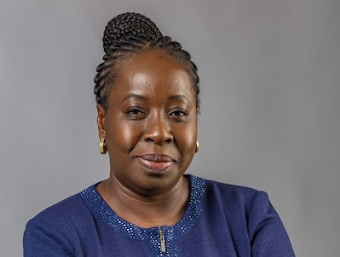
Founder of MainOne Cable companies, Funke Opeke has been passionate about improving communications in Africa. After working for two decades in the US including communications company Verizon, she returned to Nigeria and began working at Nigerian Telecommunications Limited (NITEL). Her passion has been to fix telecommunications in Nigeria. Her company, MainOne built the first privately-owned submarine network in West Africa extending 7,000 kilometres from Portugal to Lagos, Ghana and Côte d’Ivoire and connecting West Africa to other major business communities. As CEO of Main One, she has raised over $240 million in funding and led her company from a fledgling startup to a multimillion-dollar communications giant which was acquired by Equinix for $320 million in 2021.
3. Lynda Saint-Nwafor, Chief Enterprise Business Officer, MTN Nigeria
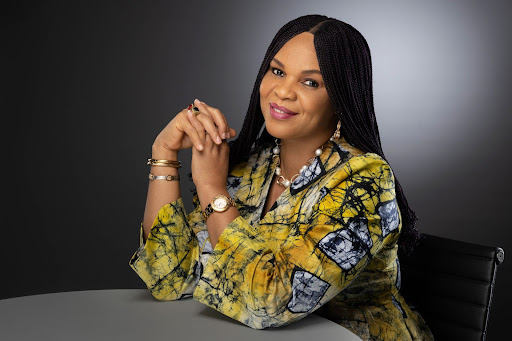
A graduate of Engineering, Lynda obtained her BSc from Enugu State University in 1996 and became a valuable addition to the MTN team when she joined as Systems Planning Engineer in the Networks Division in 2002.
Lynda began her career in 1994, as a Trainee System Analyst with Data Sciences Nigeria Limited, where she amassed a wealth of experience, before leaving to head the Engineering, Development & Project Management Department at EMIS Telecoms Nigeria in 2001.
Since joining MTN Nigeria in 2002, she has been on the rise. In 2011, she became the Chief Technical Officer, the first woman to occupy this position in the country. In June 2016, she assumed the position of Chief Enterprise Business Officer, where she currently steers the ship that leads enterprise and ICT strategy in MTN. She has also served in various key advisory positions such as being a Member of the Presidential Committee for Broadband development instituted by Former President Goodluck Jonathan.
With over 20 years of experience at MTN, Lynda Saint-Nwafor has served as the Chief Technical Officer and General at MTN Nigeria and has also been a member of the Presidential Committee under Former President Goodluck Jonathan. She is passionate about small businesses and how they contribute to the innovation of the country and she spends her time as CEBO working towards the growth of these businesses and their founders.
4. Adia Sowho Chief Marketing Officer, MTN Nigeria

Adia is the face of MTN’s brand refresh in Nigeria (which highlights the company’s ambitions and 2025 targets, aimed at leading digital platforms for Africa’s progress), Adia made history as the first female Chief Marketing Officer of MTN Nigeria.
A former CEO, tech venture builder, and operator, she also sits on the Board of various companies. She is an experienced global executive who leverages her background in engineering, consulting, and product development to build and operate leading category-defining businesses. With deep expertise spanning technology, telecommunications, and finance, she has successfully designed, built, and scaled tech-driven platform companies in emerging markets valued at over USD $100+ million.
Prior to joining MTN, Adia was the interim CEO of ThriveAgric where she was appointed to guide the company through a turnaround exercise in 2020. Before her appointment at ThriveAgric, she was the VP for Growth at Migo (formerly Mines.io) in San Francisco, CA. She joined the team to act as the Managing Director for Migo’s Nigerian Office.
She also worked at Etisalat Nigeria (9mobile) for more than seven years where she held positions such as Head, Strategy and Business Development, Head of Digital Media, and Director of Digital Business. Prior to that, she worked as a consultant at Deloitte Consulting for about two years and Radio Frequency Engineer at US Cellular for about seven years.
Adia holds a bachelor’s degree in Electronics and Electrical Engineering with a major in Communications from the University of Sheffield, United Kingdom and a Master of Business Administration from Kellogg School of Management with majors in Strategy, Analytical Consulting, Strategic Marketing and Entrepreneurship.
She supports Africa’s tech ecosystems as a startup mentor and speaker, working with various Africa-focused VC firms to better prepare their portfolios for scale. She’s currently an advisor to Zimbali Networks, One Health, and venture funds Ventures Platform and Rally Cap. She made history in 2021 shattering glass ceilings to become the first female Chief Marketing Officer at MTN. She has spent her career designing, building, and scaling tech businesses and she’s passionate about revolutionising communication.
5. Juliet Ehimuan-Chiazor, Country Manager, Google, Nigeria
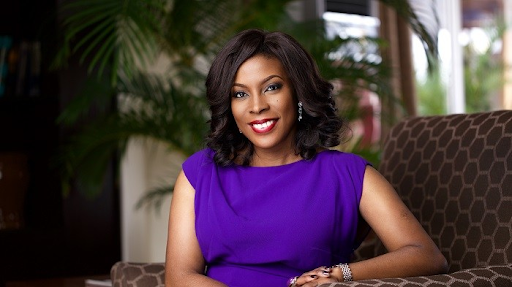
Juliet was one of Forbes’ 2011 “20 Youngest Power Women In Africa” and has been featured in BBC Africa’s Power Women series and CNN’s Innovate for her accomplishments. A high-achiever, she has worked as a Program Manager at Microsoft, General Manager, Strategic Business Units at Chams PLC, and now at Google as Country Director, leading business strategy in West Africa. As a go-getter herself, she champions opportunity for others through her initiative called Beyond Limits Africa which offers coaching, leadership programs, and workshops to individuals in Africa.
Read the full list on TechCabal.
NIGERIA IMPLEMENTS UNIFORM USSD CODES
Nigerians can say goodbye to memorising USSD codes for different network providers and banks.
Five years after the Nigerian Communications Commission (NCC) shared a report on uniform shortcodes, stakeholders in the telecoms industry will now begin implementation.
Harmonised shortcodes allow customers of different mobile operators and banks to use the same USSD codes to check airtime balance, buy airtime or even make bank transactions. The primary argument for harmonisation is that it will enable easy memorisation and a more cohesive regulatory environment.
Currently, Nigeria has more than four major mobile network operators and about 21 commercial banks operating in Nigeria with different shortcodes for airtime and data recharge, balance checking, and borrowing, among other transactions. For such banks and businesses, this means all the marketing and customer awareness will come to a halt, as they will now focus on the joint publicity of the new harmonised codes.

According to the Association of Licensed Telecommunications Operators of Nigeria (ALTON), the migration to a new set of codes will be concluded by May 17, 2023, which will mark the end of the viability of old shortcodes. The new shortcodes will then continue as the only means of sending the commands on mobile devices.
The new shortcodes include *300# for call centres; *303# for airtime borrowing services; *310# for balance checking; *311# for credit recharge; *312# for data plan; and *2442# for porting services.
Curacel Grow helps you easily embed insurance with your products and on your platforms to increase customer loyalty and grow revenue. Our embedded insurance products give you tailored and on-demand insurance to suit your specific business needs.
To learn more about how we can help you expand your business, visit Curacel.co, send an email to marketing@curacel.ai or call 08035257749.
This is partner content.
KENYA PROBES FOOD DELIVERY PLATFORMS

Kenya’s regulatory body for competition is taking a look into food and grocery delivery platforms.
Yesterday, TechCrunch reported that the Competition Authority of Kenya (CAK) was probing the conduct of online food and grocery delivery platforms.
Why? Well, the CAK is reportedly looking to create policy options that promote healthy competition and protect consumers in Kenya. To do this, the CAK has announced it will review how platforms like Glovo, Bolt, Uber and Jumia use customers’ data, their acquisition channels and other mechanisms.
“The market inquiry will seek to uncover how food delivery and groceries platforms work in practice and suggest regulatory and policy options for competition and consumer protection enforcement,” said the CAK acting director general, Adano Wario. “The inquiry will identify players and services involved in the food delivery and groceries platforms business model in Kenya and examine the relationships between the platforms and the users with focus on the competition parameters (market power and conduct) and concerns amongst the players,” said Wario.
Zoom out: This is the second major consumer protection measure being reported by competition regulators on the continent. Just last week, the Common Market for Eastern and Southern Africa (COMESA)—which Kenya is a member of—ruled that Jumia, and other e-commerce platforms, should be liable for any disputes arising from faulty products bought on its platform.
TWIGA PARTNERS WITH KENYAN GOVERNMENT
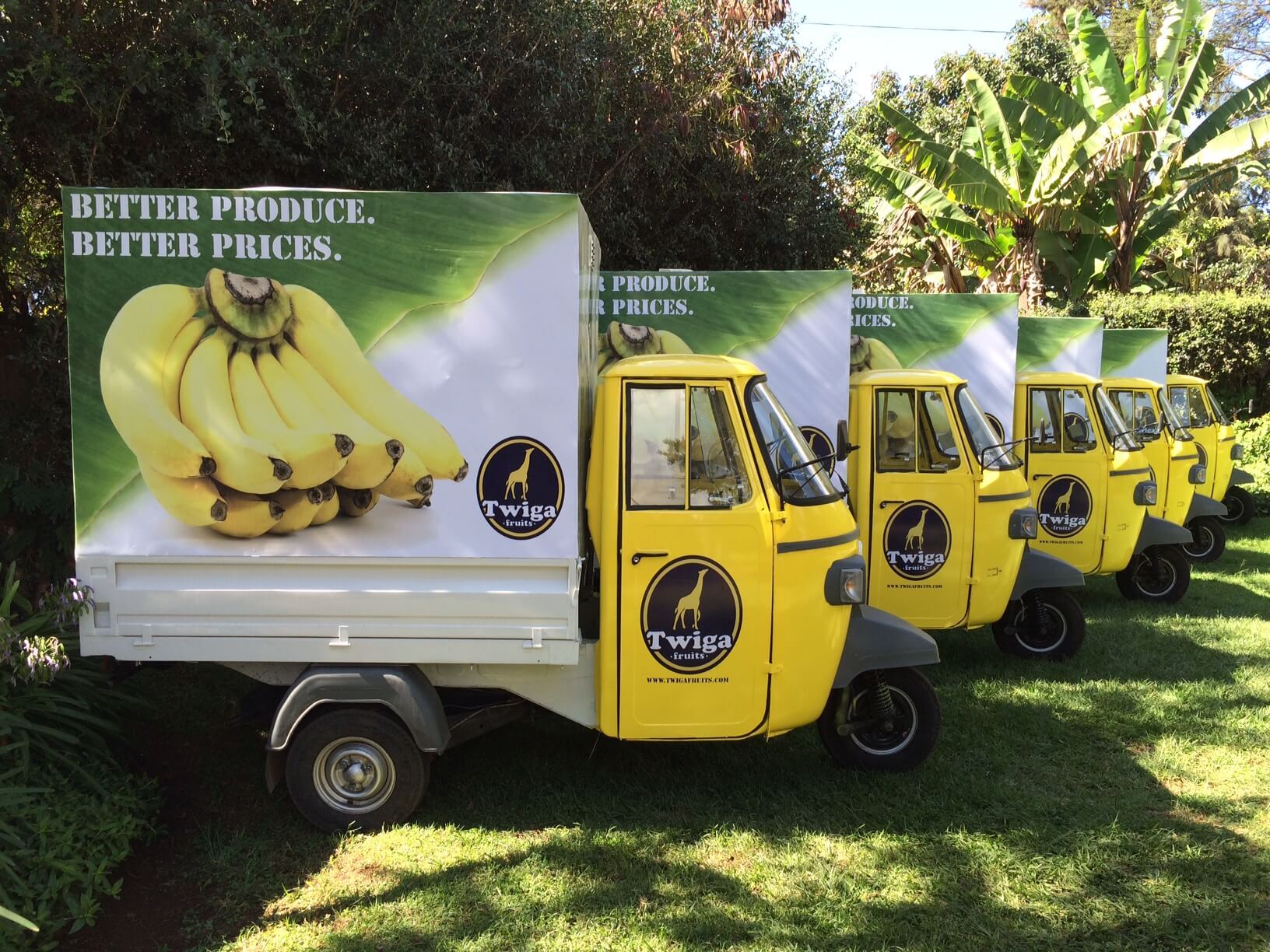
B2B food commerce startup, Twiga Foods has commenced maize farming as part of a public-private partnership with Kenya’s government to scale up food production.
According to Business Daily Africa, the Galana-Kulalu Food Security Project is a pilot research project within the Galana Irrigation Scheme, an ambitious 1 million-acre agriculture project designed to improve food production in Kenya.
Under the project, 10,000 acres were designated for a model farm, with the aim of testing the performance of modern irrigation systems on a large scale. But since 2014, the project has struggled to meet expectations owing to fluctuations in budgetary allocations and bad weather. In 2019 the model farm was projected to make Ksh 1.2 billion ($9.3 million) in maize sales per season. But it only managed 119,000 90 kg bags of maize, worth about Ksh 273.7 million ($1.8 million).
In January 2023, Kenya’s Ministry of Water announced that it would open up 5,000 acres of the Galana-Kulalu Irrigation Scheme to private companies under a government-private partnership to enable the government to increase food production. Twiga Foods, which was celebrated as the top-paying Medium Taxpayer last year by the Kenya Revenue Authority, appears to be the first private company to begin commercial farming in the Galana-Kulalu project area.
By May 2022 Twiga Foods opened its first farm, as it moved to integrate part of its supply chain. Launched under a new subsidiary, Twiga Fresh, the company invested $10 million to produce onions, tomatoes and watermelons on 1,606 acres of land, with an estimated yearly output of 150,000 tons of fresh produce.
Kenyan government officials were impressed by Twiga’s commercial farming ambitions and resolved to incorporate one of their favourite taxpayers to help bring life into the Galana-Kulalu Food Security Project.
“We have visited the farms where Twiga is doing production and we were convinced that they are the best. They will not only help us in achieving food security but also create employment,” said Mugambi Gitonga, principal secretary for irrigation, to BusinessDaily Africa.
CRYPTO MARKET

|

|

|
|---|---|---|
|
Bitcoin 
|
$22,009 |
– 1.66% |
|
Ether 
|
$1,558 |
– 1.06% |
|
BNB 
|
$288 |
+ 0.05% |
|
Solana 
|
$19.89 |
– 4.44% |
|
|
Source: CoinMarketCap
|
|
* Data as of 06:30 AM WAT, March 8, 2023.
OPPORTUNITIES
- The 100x Impact Accelerator is open to applications from impact-driven social enterprises that work across eight sectors including health, climate and education. Selected enterprises will receive £150,000 grants and access to LSE’s world-class expertise, plus a 12-week programme of bespoke support from experts and social unicorn founders. Register by March 10.
- The Jasiri Talent Investor Programme is looking for highly driven individuals with a history of achievement and/or entrepreneurial action who aspire to launch a high-growth venture. Apply by April 23.
- The Growth Africa Accelerator Programme is calling for applications from ambitious and committed entrepreneurs from Kenya, Uganda, Ethiopia, Zambia or Ghana with the potential to grow and create impact through their businesses. Apply now.
- The HiiL Justice Accelerator Programme is now open for applications from Kenyan startups with solutions that help people resolve their legal problems. Eight selected startups will receive $10,000 in equity-free funding as well as the chance to win up to $21,000 on Demo Day. Apply by March 31.
- Google has announced that the Google for Startups Black Founders Fund is now accepting applications from Black founders across the African continent. Apply by March 26.
- The Africa Business Heroes (ABH) Prize Competition, a philanthropic initiative sponsored by the Jack Ma Foundation and Alibaba Philanthropy, is calling for participation from Africa’s entrepreneurial talent. Apply by May 12.
- Rwandan startups have been invited to apply for the ZEP-RE InsurTech Programme, which will support scalable startups in creating new markets and optimising efficiency. Apply by March 15.


























